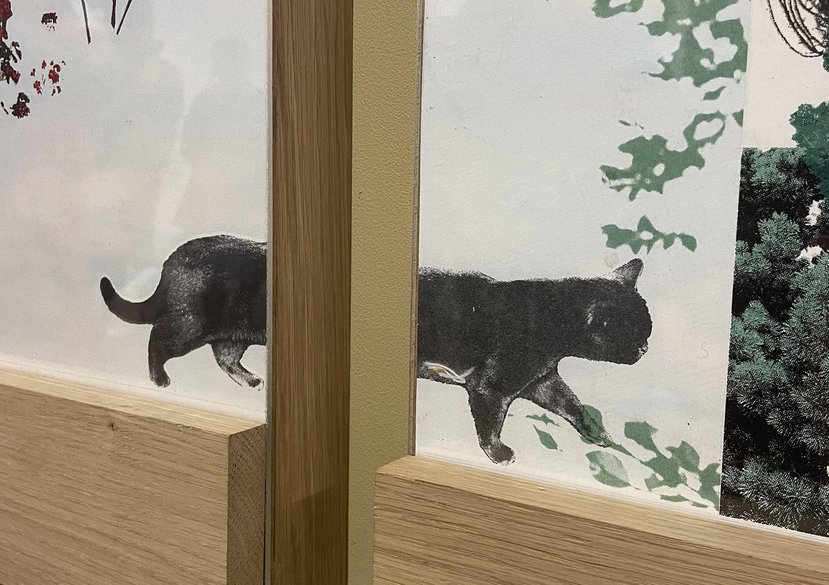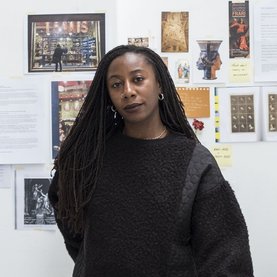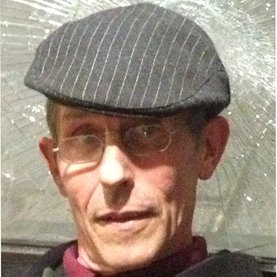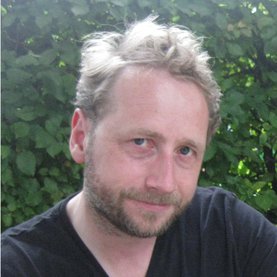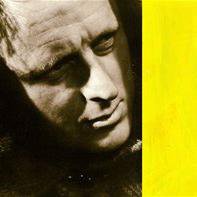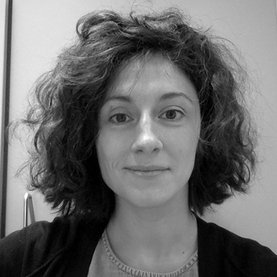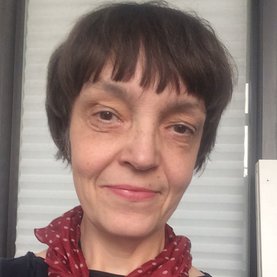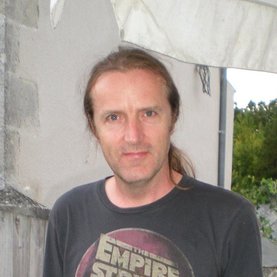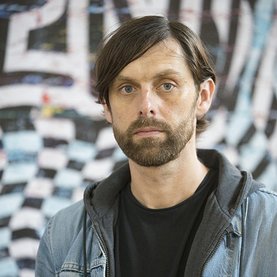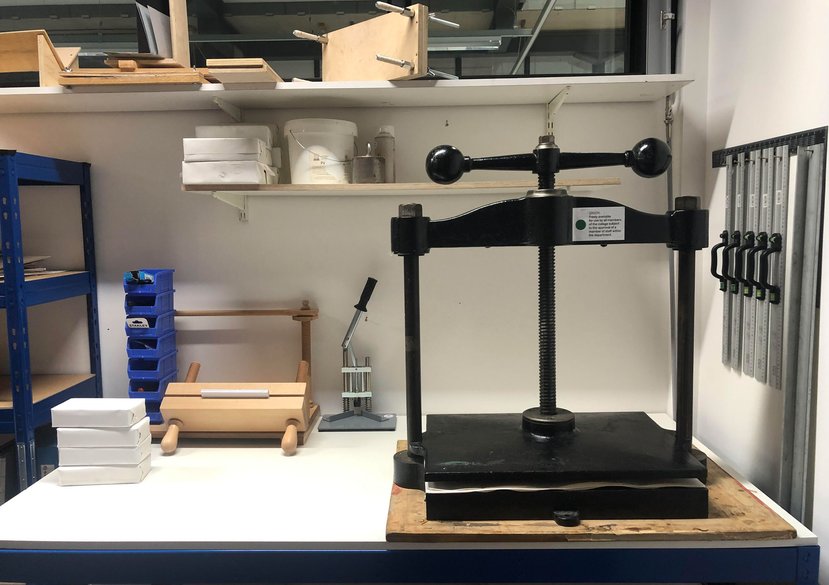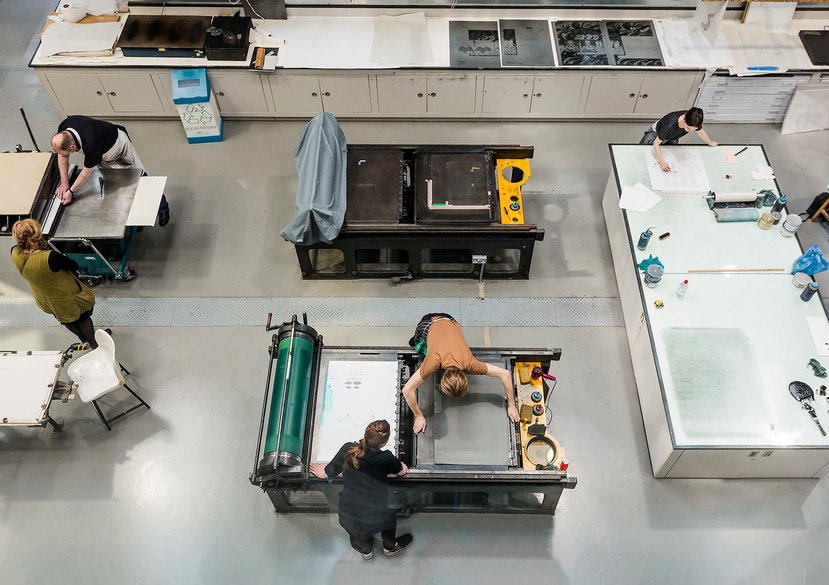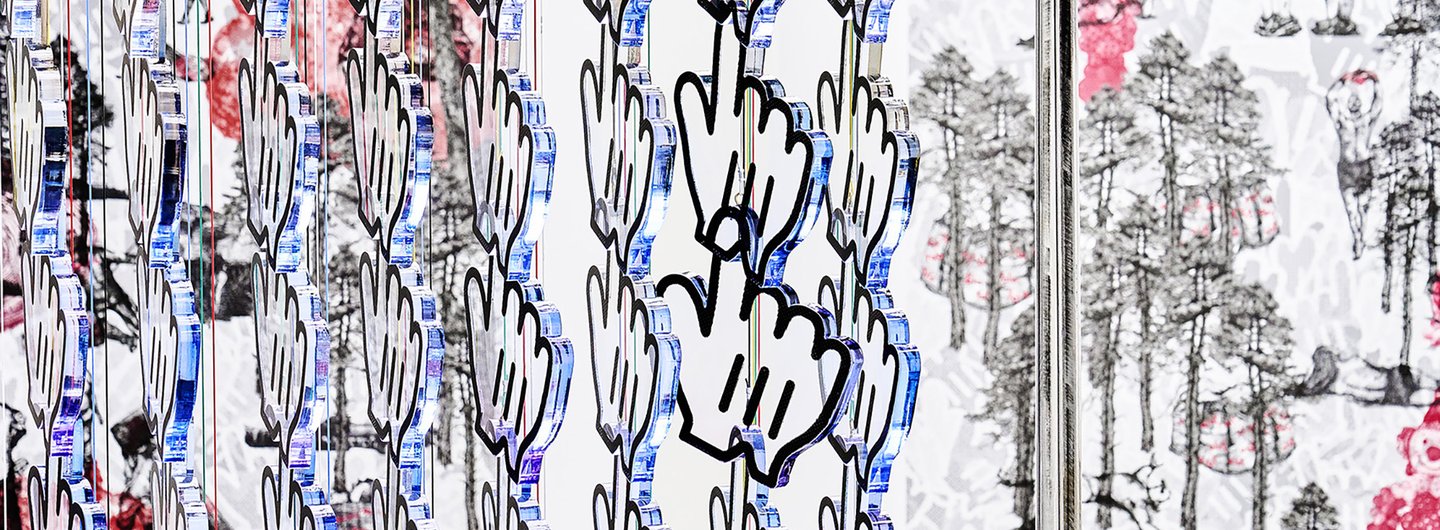
Overview
Reinventing print
Key details
- 180 credits
- 1 year programme
- Full-time study
School or Centre
Location
- Battersea
Next open event
Application deadline
- 14 Aug 2024
Understand the field of print through making, exhibiting, publishing, discussion and writing.

Discover a Master’s programme concerned with the rich cultural legacies of printed matter and how technically mediated images reshape our world.
Explore print from diverse angles – making, archives and global media – delving into rich cultural legacies. We foster your unique potential and thrive on a diverse student body.
Engage in seminars, work with visiting artists, and participate in publishing projects. Our position within an internationally renowned art school and our London setting provide a critical backdrop to explore Print practices.
Learn from practising artists working in a wide range of media who share a fascination with the centrality of print and replication to contemporary culture.
Applications for the September 2024 intake are open and will be assessed on a rolling basis. Programmes will close for applications when the maximum number of places have been awarded, or at the final deadline on 14 August, 12 noon (UK time).
Explore graduate work
In July 2023, students presented a series of exhibitions and events featuring their final work. Explore online at the RCA2023 website.
You can also view previous events and exhibitions online at Showcase.
Find out more about this programme
Catch the replays from our latest online Open Day.
Gallery
Staff
Facilities
The School of Arts & Humanities is located across our Battersea and Kensington sites.
View all facilitiesAll full-time students on fine or applied arts programmes are provided with studios or workspace, and access to specialist workshops. There are a number of bookable seminar and project spaces across the site available to all Arts & Humanities students.
Our alumni
Our alumni form an international network of creative individuals who have shaped and continue to shape the world. Click on each name to find out more.
Where will the RCA take you?More details on what you'll study.
Find out what you'll cover in this programme.
What you'll cover
What will I learn?
Throughout your studies, you’ll debate questions of originality, authenticity, and value in the realm of multiplying images. You’ll navigate the intricate difference between hard copy and screen-based images, amidst discussions about NFTs and social media's role.
Enhance your work with access to well-equipped technical workshops throughout the College – though note our focus isn't on teaching technical skills, but on technology's impact in communicating and distributing images, ideas and understanding.
How will I learn?
There will be several opportunities to collaborate with others, but at a minimum, your programme will include 255 contact hours and 1,545 independent study hours. Contact hours can consist of lectures, seminars, tutorials, critical forums and workshops, among other types of teaching delivery.
Teaching types included on your programme can consist of briefings, projects, tutorials, seminars, lectures, critical forums, technical inductions, technical workshops, offsite visits and blended learning.
Programme structure
The programme is delivered across three terms and includes a combination of programme, School and College units.
Term 1
In Orientation, Induction and Experimentation (45 credits), we begin with the notion of orientation, a term originating from ‘Orient’.
‘a person's basic attitude, beliefs, or feelings in relation to a particular subject or issue’
- Where do I begin?
- What is my current practice/interest /skill set?
- What interests me in the wider field?
- What work by other artists/writers is relevant to my practice?
- How do I describe/speak about what I do?
You will begin the programme with a series of orientation sessions and technical inductions. Seminars and external visits to exhibitions and archives will help you understand the expanded field of Print in the context of the broad field of contemporary art. You will be encouraged to experiment with new ways of making to challenge existing models of thinking and demonstrate this through studio practice.
Term 2
Development and Context (30 credits) deepens an engagement with producing work and, through discussion, understanding how it might be read, displayed and contextualised. To this end, holding a group exhibition/event and a publication project gives you deadlines and experience of professional contexts.
The School-wide unit Urgency of the Arts (15 credits) asks how arts and humanities research and practice can engage with our current socio-political climate and how it might shape, be necessary and essential in contemporary cultural debates.
The unit introduces you to diverse perspectives, approaches and methods relevant to contemporary practice and thought in the arts and humanities. The delivery, predominantly based on workshops and featuring specialist presentations by leading artists, aims to assist you in recognising, questioning, expanding, and reevaluating your own artistic practices and disciplinary assumptions. Through interactions with staff and students from across the School and a variety of methodological approaches, you will develop an understanding of the contemporary concerns that shape and influence artistic practice.
You will be supported in understanding your work's possibilities, complexities and impact. You will be encouraged to contextualise it within broad cultural landscapes to recognise and emphasise its potential and the complex ways your work may be received and understood.
Terms 1 and 2
Across terms 1 and 2, you will participate in AcrossRCA (15 credits). This unit aims to support you in meeting the challenges of a complex, uncertain and changing world by bringing you together to work collaboratively in interdisciplinary teams on a series of themed projects informed by expertise within and beyond the College. These projects will challenge you to use your intellect and imagination to address key cultural, social, environmental and economic challenges. In doing so, you will develop and reflect on the abilities required to translate knowledge into action and help demonstrate the contribution the creative arts can make to our understanding and experience of the world.
Term 3
The Independent Research Project (60 credits) is an opportunity to build a body of work that addresses the key ambitions of your research and practice. You will work towards presenting a work or works in the IRP Public Exhibition, which enables you to explore how to activate your work in a public context, experiment with the most appropriate forms of realising your ideas and gain critical feedback. The IRP exhibition takes place mid-way through the unit. It will be followed by a reflection and further development period, which emphasises planning for continued practice and research post-graduation.
The IRP emphasises the sharing of work with an audience. The focus is on completing work which synthesises and builds upon the work of the last two terms. You will be expected to make, curate and exhibit in the context of a group exhibition. Most Print students would work in exhibition, though a few may choose publication as the principal form. You will have submitted a plan for your independent research project at the end of the second unit based on the experience of the exhibition and publications projects in unit 2.
AcrossRCA
AcrossRCA is a compulsory 30-credit unit which is delivered as part of all MA programmes.
Situated at the core of your RCA experience, this ambitious interdisciplinary College-wide unit supports you in responding to the challenges of complex, uncertain and changing physical and digital worlds. Developed in response to student feedback, AcrossRCA creates an exciting opportunity for you to collaborate meaningfully across programmes.
Challenging you to use your imagination and intellect to respond to urgent contemporary themes, this ambitious unit will provide you with the opportunity to:
- make connections across disciplines
- think critically about your creative practice
- develop creative networks within and beyond the College
- generate innovative responses to complex problems
- reflect on how to propose ideas for positive change in local and/or global contexts
AcrossRCA launches with a series of presentations and panel discussions from acclaimed speakers who will introduce the themes and act as inspirational starting points for your collaborative team response.
Delivered online and in-person across two terms, the unit has been designed to complement your disciplinary studies and to provide you with a platform to thrive beyond graduation.
Requirements
What you need to know before you apply
Candidates are selected entirely on merit and applications are welcomed from all over the world. The selection process considers creativity, imagination and innovation as demonstrated in your portfolio, as well as your potential to benefit from the programme and to achieve high MA standards overall.
You’re expected to have completed a BA degree. In recent years, students have come from fine art, printmaking, painting, sculpture, photo media, conservation, illustration, design, textiles, architecture and interactive arts courses. While many students enter the course after years of independent work, we also accept students directly from undergraduate courses.
We are looking for candidates who are excited about the potential of engaging with the College-wide peer group, and making the most of the educational opportunities the Programme offers. You may not have made prints before but should have a keen interest in the nature of the multiplied image and the desire to investigate the ideas we engage with.
What's needed from you
Portfolio requirements
The portfolio allows us to see your work and the interests you want to develop during the MA. Alongside applications working with Print Media, we have accepted people from all fine art disciplines, public art, design, illustration, literature, architecture or who have a practice developed in industry or independently. We want students who are interested in the multiplied image and how the translation of images into different materials/media and their distribution across different sites affects their meaning. We are not a course to simply learn techniques, so do not write at length about technical issues. However, digital technologies have changed how we think about and make images, and you may want to reference this as you write about the context for your work.
In this portfolio, please submit clear images of the work you have made. including title, date, media and size if appropriate.
You have five slots and each can accept up to four images. Do not overload the slots with too many images or complex PDFs. Be concise. You may use each slot to show how a work/project evolved from start to completion. Use all available slots and limit the time of moving image works to 2 minutes maximum.
We want to learn about:
- The work: how you approach making and developing your work
- The context: what ideas, issues, or themes you explore and what influences those interests. You may reference any influences related in some way to your work.
Video requirements
We ask that you upload a two-minute video recorded on your phone or laptop, speaking to us directly. High production qualities are not needed. We will review the work in your portfolio, so keep your video simple.
Use the video to share with us a response to the following. Print is an expansive field of activity, drawing on a wealth of historical, material, and conceptual positions, and embracing very different ways of thinking and making.
- What excites you about exploring this field?
- Choose an example from your portfolio which you consider your most successful work to date. You may choose to show documentation or point to actual works. Tell us why you feel it is successful and what choices you made technically and conceptually in creating it. We would prefer something self-initiated rather than a response to a brief, but this is not essential.
- Tell us what work you wish to develop during your time at the RCA. What will you particularly bring to the programme? What do we need to know about you?
English-language requirements
If you are not a national of a majority English-speaking country you will need the equivalent of an IELTS Academic or UKVI score of 6.5 with a 6.0 in the Test of Written English (TWE) and at least 5.5 in other skills. Students achieving a grade of at least 6.0, with a grade of 5.5 in the Test of Written English, may be eligible to take the College’s English for Academic Purposes course to enable them to reach the required standard.
You are exempt from this requirement if you have received a 2.1 degree or above from a university in a majority English-speaking nation within the last two years.
If you need a Student Visa to study at the RCA, you will also need to meet the Home Office’s minimum requirements for entry clearance.
Fees & funding
For this programme
Fees for new students
Fees for September 2024 entry on this programme are outlined below. From 2021 onward, EU students are classified as Overseas for tuition fee purposes.
Home
Overseas and EU
Deposit
New entrants to the College will be required to pay a non-refundable deposit in order to secure their place. This will be offset against the tuition fees.
Home
Overseas and EU
Progression discount
For alumni and students who have completed an RCA Graduate Diploma and progress onto an RCA Master's programme – MA, MA/MSc, MFA, MDes, MArch, MEd or MRes – within 10 years, a progression discount of £1,000 is available.
* Total cost is based on the assumption that the programme is completed in the timeframe stated in the programme details. Additional study time may incur additional charges.
Scholarships
Scholarships
The RCA scholarship programme is growing, with hundreds of financial awards planned for the 2024/5 academic year. Examples of financial awards offered in 2023/24 are given below.
The Deputy Vice-Chancellor’s International Scholarship
For: All MA programmes, MArch, MFA, MDes, MRes & MEd
Eligibility criteria: Students from Australia, Bangladesh, Canada, Colombia, Cyprus, Egypt, France, Germany, Greece, Hong Kong, India, Indonesia, Ireland, Israel, Italy, Japan, Lebanon, Malaysia, Mexico, Nigeria, Pakistan, Poland, Portugal, Saudi Arabia, Singapore, South Korea, Spain, Sri Lanka, Switzerland, Taiwan, Thailand, Turkey, UAE, USA
Eligible fee status: Overseas fee status
Value: £7,000 towards fees
The Deputy Vice Chancellor’s EU Scholarship
For: All MA programmes, MArch, MFA, MDes, MRes & MEd
Eligibility criteria: Students from Austria, Belgium, Bulgaria, Croatia, Cyprus, Czech Republic, Denmark, Estonia, Finland, France, Germany, Greece, Hungary, Iceland, Italy, Latvia, Liechtenstein, Lithuania, Luxembourg, Malta, Netherlands, Norway, Poland, Portugal, Romania, Slovakia, Slovenia, Spain, Sweden, Switzerland, Turkey
Eligible fee status: Overseas fee status
Value: £7,000 towards fees
The Deputy Vice-Chancellor’s UK Scholarship
For: All MA programmes, MArch, MFA, MDes, MRes & MEd
Eligible fee status: Home fee status
Value: £5,000 towards fees
Leverhulme Arts Scholarship
For: MA Sculpture, MA Painting, MA Contemporary Art Practice, MA Print, MA Photography Eligible fee status: Home fee status
Value: Full fees
The RCA UK Disabled Students’ Scholarship
For: All MA programmes, MArch, MFA, MDes, MRes & MEd
Eligibility criteria: Students who identify as D/deaf or disabled
Eligible fee status: Home fee status
Value: £6,000 for living costs
Sir Frank Bowling Scholarship
For: All programmes excluding PhD & short courses
Eligibility criteria: Black or Black British Caribbean, Black or Black British African, Other Black Background, Mixed - White and Black Caribbean, Mixed - White and Black African
Eligible fee status: Home fee status
Value: Full fees & maintenance
The Vice-Chancellor’s UK Cost of Living Scholarship
For: All MA programmes, MArch, MFA, MDes, MRes & MEd
Eligible fee status: Home fee status
Value: £5,000 for living costs
House of Fraser Bursary
For: Any MA programme
Eligible fee status: Home fee status
Value: £10,000 towards fees
Rose Finn-Kelcey Bursary
For: MA Sculpture, MA Painting, MA Contemporary Art Practice, MA Print and MA Photography
Eligible fee status: Home & Overseas
Value: £10,000
Applying for a scholarship
You must hold an offer to study on an RCA programme in order to make a scholarship application in Spring 2024. A selection of RCA merit scholarships will also be awarded with programme offers.
We strongly recommend that you apply for your programme as early as possible to stand the best chance of receiving a scholarship. You do not apply directly for individual awards; instead, you will be invited to apply once you have received an offer.
More information
Additional fees
In addition to your programme fees, please be aware that you may incur other additional costs associated with your study during your time at RCA. Additional costs can include purchases and services (without limitation): costs related to the purchase of books, paints, textiles, wood, metal, plastics and/or other materials in connection with your programme, services related to the use of printing and photocopying, lasercutting, 3D printing and CNC. Costs related to attending compulsory field trips, joining student and sport societies, and your Convocation (graduation) ceremony.
If you wish to find out more about what type of additional costs you may incur while studying on your programme, please contact the Head of your Programme to discuss or ask at an online or in person Open Day.
We provide the RCASHOP online, and at our Kensington and Battersea Campuses – this is open to students and staff of the Royal College of Art only to provide paid for materials to support your studies.
We also provide support to our students who require financial assistance whilst studying, including a dedicated Materials Fund.
External funding
There are many funding sources, with some students securing scholarships and others saving money from working. It is impossible to list all the potential funding sources; however, the following information could be useful.
Payments
Tuition fees are due on the first day of the academic year and students are sent an invoice prior to beginning their studies. Payments can be made in advance, on registration or in two instalments.
Start your application
Change your life and be here in 2024. Applications now open.
The Royal College of Art welcomes applicants from all over the world.
Before you begin
Make sure you've read and understood the entrance requirements and key dates
More information about eligibility and key datesCheck you have all the information you need to apply.
Read our application process guideConsider attending an Open Day, or one of our portfolio or application advice sessions
See upcoming sessionsPlease note, all applications must be submitted by 12 noon on the given deadline.
Ask a question
Get in touch if you’d like to find out more or have any questions.



